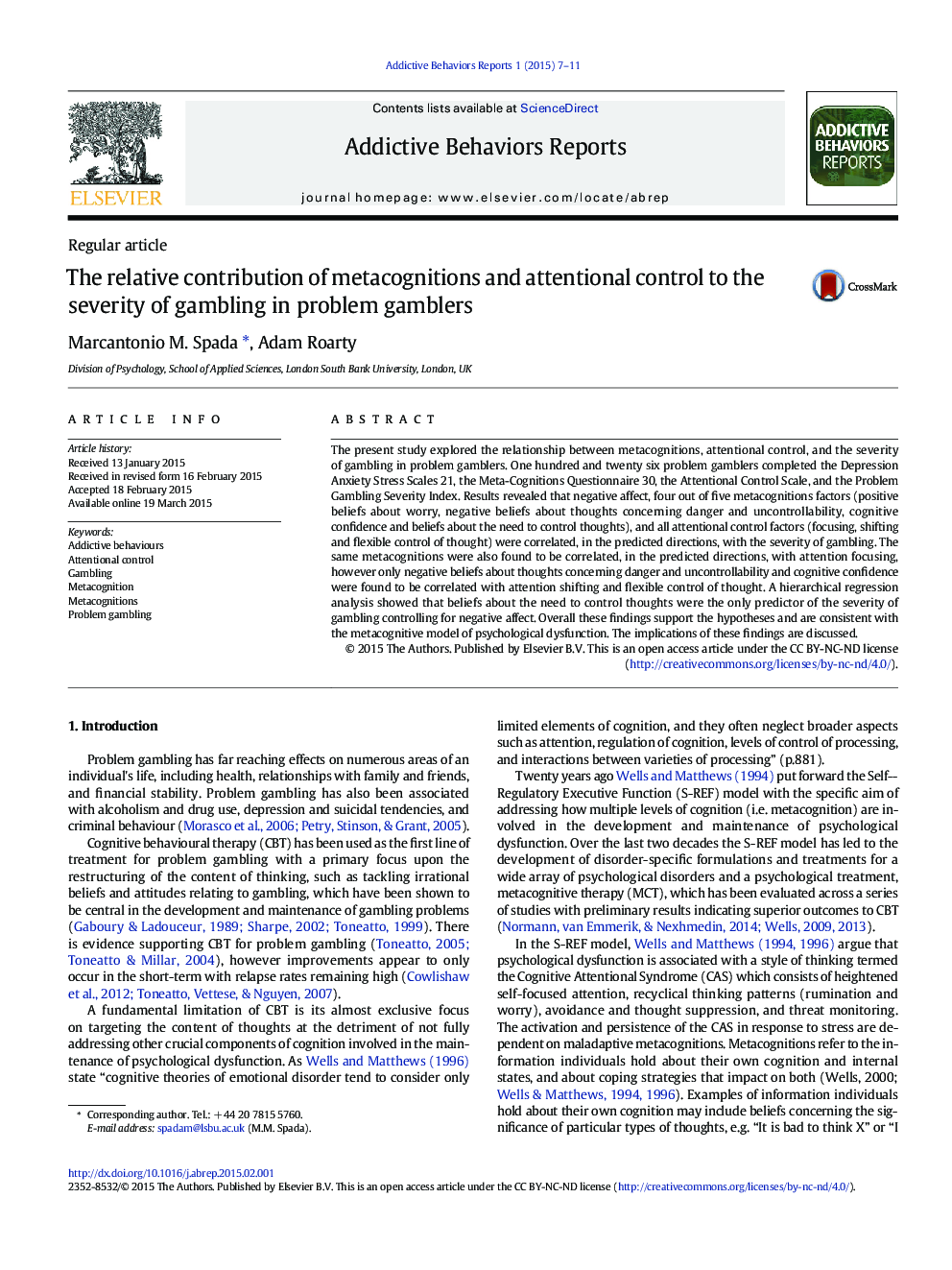| کد مقاله | کد نشریه | سال انتشار | مقاله انگلیسی | نسخه تمام متن |
|---|---|---|---|---|
| 900753 | 1472542 | 2015 | 5 صفحه PDF | دانلود رایگان |
• First study to investigate the role of attentional control in problem gamblers
• Attentional control associated to the severity of gambling
• Metacognitions predicted the severity of gambling controlling for attentional control.
• Clinical implications of the findings considered
The present study explored the relationship between metacognitions, attentional control, and the severity of gambling in problem gamblers. One hundred and twenty six problem gamblers completed the Depression Anxiety Stress Scales 21, the Meta-Cognitions Questionnaire 30, the Attentional Control Scale, and the Problem Gambling Severity Index. Results revealed that negative affect, four out of five metacognitions factors (positive beliefs about worry, negative beliefs about thoughts concerning danger and uncontrollability, cognitive confidence and beliefs about the need to control thoughts), and all attentional control factors (focusing, shifting and flexible control of thought) were correlated, in the predicted directions, with the severity of gambling. The same metacognitions were also found to be correlated, in the predicted directions, with attention focusing, however only negative beliefs about thoughts concerning danger and uncontrollability and cognitive confidence were found to be correlated with attention shifting and flexible control of thought. A hierarchical regression analysis showed that beliefs about the need to control thoughts were the only predictor of the severity of gambling controlling for negative affect. Overall these findings support the hypotheses and are consistent with the metacognitive model of psychological dysfunction. The implications of these findings are discussed.
Journal: Addictive Behaviors Reports - Volume 1, June 2015, Pages 7–11
